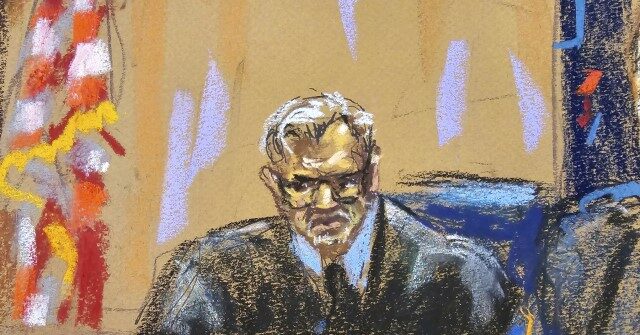Judge Just RIGGED Trial Against Trump, Tells Jurors NO NEED TO BE UNANIMOUS, Democrat CORRUPTION
As with so many issues these days there's been a ton of misinformation spread relating to this case and the other legal cases targeting President Trump. Sometimes it's misleading explanations of what's happened, sometimes it's blatant lies, sometimes it's just pretending that normal standard court procedures or rules are somehow unfathomable bizarro contrivances.
The reality is that people tend to pick their information sources based on whether those sources tell them what they want to hear and provide them with ammunition to support the narratives they want to believe. So that's what their information sources do - tell them what they want to hear and provide them with ammunition to support the narratives they want to believe. Accuracy and fair understandings of reality are, at best, afterthoughts. And too often those things are intentionally avoided. The intent isn't to inform, it's to reinforce; the customers (i.e. viewers/listeners) are fed a steady diet of the BS they crave.
There's been a ton of BS spread regarding this case in particular that I won't get lost in for now - e.g., the defense wasn't informed of what the alleged other crimes were. But in response to what this guy is saying here I'd make a few points. As I suggested in another thread, one of the fundamental problems is the vagueness (and thus effective broadness) of the law at issue here and how it's been interpreted by New York courts. There's a surprising amount of case law regarding some of the issues talked about in the present case.
For one thing, the alleged other crimes (which could make the falsifying business records charge a first degree violation) don't have to charged or proven. They also don't have to be crimes which the defendant himself committed. They don't even have to specified. It's enough, under New York case law, that the prosecution demonstrate that the defendant intended, e.g., to conceal some other crime - whatever that crime might have been. That there was intent to commit or conceal such other crime is an element of the charge, but what that other crime is is not an element of the charge. I realize that sounds crazy, but it's the way this law works. And it's emblematic of some of the general problems with our justice systems. I read one appellate court case - I'd have to go back and find it to refresh my recollection on the details - that upheld a conviction on a first degree falsifying business records charge even though the same jury either acquitted or hung on the other crime which was the basis for first degree charge. The point was, it doesn't matter what the other crime was or whether it was proven; what matters is whether there was an intent to commit or conceal
some other crime.
There are, of course, reasons why this law is on the books as is and is so broad in its potential applicability. One of those reasons is this: It provides prosecutors with a powerful swiss-army-knife-like tool which can be used to go after all kinds of practices, and so-called white collar crimes, which they find objectionable. It's about empowering government actors to go after whatever those particular government actors happen to be motivated to go after - regardless of the propriety of their motivations.
So, yes, based on New York case law the judge was correct to instruct that the jurors don't all have to agree as to what the "unlawful means" (as per New York election law) was in this case. Similarly, a jury wouldn't have to agree on what the motive for a murder was or even how that murder was carried out. The prosecution can offer a number of theories about why a husband murdered his wife or exactly how he did so. The jury just needs to be unanimous in that he actually did murder her. In this case the jury needs to be unanimous that President Trump falsifyied business records with an intent to defraud and an intent to commit or conceal
some other crime.
(I also don't won't to get lost in this - as it would probably confuse the situation more - but in this case the different theories of "unlawful means" are even further removed from the required elements of the charge which need to be proved because as the prosecution argued the case they still all fall under the New York election law. In other words, there's really only one alleged other crime which the jury will be considering though there are several argued theories as to how that crime was committed.)

 www.breitbart.com
www.breitbart.com


